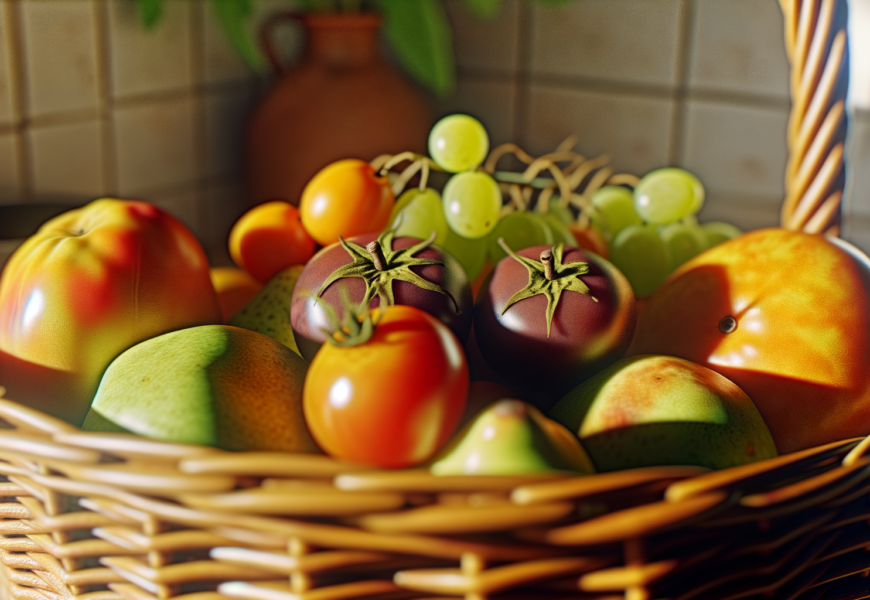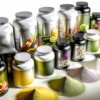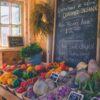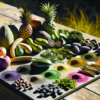Discover the Ultimate Guide to Growing Fruit at Home in 2024
Are you eager to transform your garden into a luscious paradise brimming with fresh fruits? Our comprehensive guide for 2024 is designed to be your go-to resource for cultivating a thriving fruit garden right at home. Whether you're a seasoned gardener or a novice green thumb, this guide offers practical tips, seasonal advice, and expert techniques to help you grow everything from apples to berries. Get ready to enjoy the sweetness of home-grown fruits all year round!
Choosing the Right Fruits for Your Garden
Understanding Your Climate Zone
The success of your fruit garden largely depends on understanding your USDA Hardiness Zone. This zone indicates the climatic conditions of your area, which is crucial for determining which fruit varieties will thrive. For instance, apple trees flourish in cooler zones, while citrus fruits are better suited to warmer regions. Research your zone and choose fruit varieties accordingly to ensure a bountiful harvest.
Space Considerations and Planting Locations
Maximizing your garden space is essential, especially if you're working with limited areas. Vertical gardening and container planting are excellent choices for small spaces. For example, strawberry plants thrive in hanging baskets, and blueberry bushes can be grown in large pots. Also, consider the sunlight requirements for each fruit type, ensuring that you plant them in spots where they can receive ample sunlight.
Preparing Your Soil for Fruit Planting
Soil Testing and Improvement
The foundation of a healthy fruit garden is in its soil. Testing the soil pH is the first step to understanding its current status. Most fruits prefer slightly acidic soil (pH 5.5 to 7). Soil testing kits are readily available and easy to use. Once you have your results, amend your soil with compost, sand, or other organic matter to optimize it for fruit growth.
Organic vs. Chemical Fertilizers
When it comes to fertilizing your garden, understanding the benefits of organic versus chemical fertilizers is essential. Organic fertilizers improve soil structure and increase microbial activity, leading to healthier plants. For instance, well-decomposed compost or manure enriches the soil naturally. On the other hand, chemical fertilizers provide a quick nutrient boost but can harm the soil in the long run. Learn to read chemical fertilizer labels to apply them correctly and avoid over-fertilizing.
Planting and Caring for Fruit Trees
Planting Basics
Timing is crucial when planting fruit trees. The best time is usually in early spring or late autumn. Prepare the planting hole twice as wide as the root ball and just as deep. This ensures the roots have ample space to grow. Position the tree so that the graft union (the point where the rootstock meets the scion) is above the soil line to prevent rot.
Watering and Mulching
Effective watering schedules are vital for establishing young fruit trees. Water thoroughly once a week to encourage deep root growth. Mulching around the base of the tree helps retain moisture, suppress weeds, and moderate soil temperature. Use organic mulch like straw, wood chips, or shredded leaves, and apply it in a circle extending to the tree’s drip line, leaving a gap around the trunk to prevent rot.
Growing Berries and Bush Fruits
Choosing Berry Varieties
Berries are a delightful addition to any home garden. Popular varieties like blueberries, raspberries, and strawberries are not only delicious but also packed with nutrients. Choose varieties suited to your climate zone and space. For example, highbush blueberries are perfect for colder climates, whereas blackberries thrive in warmer areas.
Maintenance and Pruning
Pruning your berry bushes correctly ensures maximum yield. For instance, prune blueberry bushes in late winter when they are dormant, removing old wood to encourage new growth. Likewise, thinning raspberry canes improves air circulation and increases fruit production. Regularly check your berry plants for pest infestations and diseases such as powdery mildew and apply organic pest control methods like neem oil or insecticidal soap.
Seasonal Care and Harvesting Tips
Spring and Summer Tasks
Spring and summer are critical periods for pollination and fruit development. Encourage pollinators by planting companion plants like lavender or marigolds nearby. This attracts beneficial insects like bees. Additionally, thin fruit trees to prevent overcrowding and improve air circulation, which results in better-quality fruits. Removing excess fruit also reduces the risk of branch breakage from the weight.
Fall and Winter Preparation
As the growing season winds down, it’s time to focus on harvesting and winterizing your garden. Harvest fruits when they are fully ripe; apples often detach easily when twisted. Use proper techniques to avoid damaging the plant. For winter preparation, remove fallen leaves and debris to prevent pest infestation, and apply a thick layer of mulch to protect the roots from freezing temperatures. Consider using burlap or other frost-protection methods for sensitive plants.
Conclusion
Embarking on a journey to grow your own fruit is rewarding and enjoyable. With our comprehensive guide for 2024, you have all the information you need to achieve a fruitful garden. Start planning your fruit garden today, embrace the joys of harvesting fresh produce, and share your success stories with fellow garden enthusiasts. Happy growing!
This expansive guide aims to assist you in every stage of creating and maintaining a thriving home-grown fruit garden. Whether it's understanding climate zones, optimizing your soil, or mastering the art of pruning, you're now equipped with valuable insights and tips. The journey from garden planning to enjoying the fruits of your labor is both fulfilling and productive.
Ready to get started? Gather your seeds, tools, and enthusiasm and watch your garden transform into a haven of fresh, home-grown goodness all year round.










